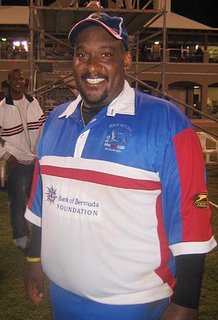Precis 
Dry weather and near-perfect batting conditions.
Kookaburra ball becomes soft after 20-25 overs and easy to bat against.
Australian batting excellent, bowling on the wane.
English batting adequate (albeit with caveats), bowling bad (possibly awful).
Australia 68% England 10% Draw 22%.
Background.Hype in Australia is enormous, with every news item and story remorselessly analysed. Respect is being shown towards the Poms, though inwardly every Australian believes it will be a massacre. After 2005 they’re a little bit frightened of saying it though.
Weather set fair for a full quota of overs, though Brisbane has a history of sudden and unpredicted storms. Today’s forecast of “a possible light shower or two” needs watching closely.
Play starts at 10 am local time (11 am Melbourne, since Victoria uses Daylight Saving Time). This earlier start can assist the new ball swing common at the Gabba.
The wicket has been assessed for the last couple of days as being drier and less grassy at various stages of preparation than a normal Gabba deck.
Freak weather on the Eastern Seaboard last Wednesday lead the curator to speculate about a greentop and although the intervening weather has been perfect he may have brought this wicket on a little earlier just in case of problems.
The Gabba has taken over the mantle of the WACA as the quickest and bounciest in Australia, hardening up whilst its rival has slowed markedly. Runs for the openers will still be hard-fought but all the sense is of a very true and fair wicket.
How much assistance there will be for spinners later in the game is key to the outcome, though I do not expect variable bounce to come into play as dramatically as it can do in England. The ball may turn but the footholes will need to be very pronounced for things to become impossible. Attacking Langer, Hayden, Hussey and Gilchrist this way could be England’s best chance.
The Kookaburra ball used in Australia is much less rewarding for both seam and spin bowlers than the Dukes. The first 20-25 overs can still be a trial for batsmen (doubled on a typical Gabba wicket, which this may not be) but once the hardness has disappeared then bowlers face a tough 60 overs. The last warm-up game against South Australia that I watched exhibited that characteristic two phases of gameplay very strongly. A morning session spent wondering where runs were coming from was followed by an afternoon and evening of uninhibited strokeplay.
Australia
Batting.Both in terms of individual talent and collective strength in depth the Aus batting line-up is intimidating. Perhaps they lack recent four or five day first class gametime, with the recent ODI glut, but it is difficult to see England taking 20 wickets in this game. The middle order weakness of Martyn, Katich and Gilchrist that England attacked so viciously and successfully in 2005 is unlikely. Not only is Katich’s replacement Hussey one of the finest players in the world but the middle order will probably be facing a worn, softer old ball that is not reverse swinging. Even should they have to face a new ball after 80 overs the chances are that the bowlers will be tired and the Aussie innings dominant. England must look to attack Langer, Ponting and Martyn, on grounds of age and/or poor recent domestic and ODI form. On the likely wicket at Brisbane this will be a very tall order indeed. Runs can also be expected from Warne and Lee at 8 and 9 respectively if required.
Bowling.All the signs presage a four man attack of Lee, McGrath, Clarke and Warne.
Lee should find conditions ideal, as his excellent Gabba record serves to highlight. A pacey wicket which offers just enough seam and swing for the new ball is made for him. England may have two left handed openers but Cook in particular will be playing in a much more intense and challenging environment than he has ever had to face before, and Lee will target him.
McGrath lacks proof of his continuing form and ability, having played very little recent first class cricket. His ageing frame could be the victim of the 3 seamer policy, as he might be expected to bowl more than his normal quota of overs. The loss of the extra yard and a half of pace that made him a true champion is significant, though he is so good at adapting his game to the demands of the situation. A question mark hangs over him though.
Clark was by far the best of the NSW bowlers in the warm-up game against Eng, meaning he is the best of the three seamers on show here. With height, control and movement he excelled in South Africa and provided he is given the ball early enough by Ponting to enjoy a modicum of hardness and movement he can be expected to bowl well at Collingwood and Pietersen.
Warne has been finding things tough in the Pura Cup this year, taking 3 cheap lower order wickets in VIC’s rain-affected draw with TAS at the MCG last week from 46 overs at a cost of 159 runs. He was a spent force physically by the end of the 2005 series, too tired almost to walk and with a season of county cricket only eight weeks behind him needs to go to the well again for this series. He remains peerless, of course, but his battles with Pietersen using the older ball will make for gripping viewing.
Fielding and Captaincy.
No side in the world approaches Australia for their “defense”, as the baseball analysts would have it and all aspects of the fielding better those of the English team.
However the captaincy of Ponting was shown last time to lack the tactical acuity of his two great predecessors Taylor and Waugh. They set very high standards but it should be remembered that leading even the world’s finest cricketers is not always a cakewalk.
Summary.Much has been made of the age of this Australian squad, and the loss of Watson has left them unable to reduce the burden placed on their oldest and most important players like McGrath, Warne and Langer. England’s bowling doesn’t look capable of laying down the same sort of challenge as in 2005 and the Australian trait of accumulating lots of runs at frenetic pace remains to the fore.
Australia’s bowling can give England a little heart. Each game reflects the series situation – the longer England can last in each match and the more work they can ask of the ageing Australian bowlers then the more major cumulative impact they can have.
England
Batting.
Although weakened by the loss of Trescothick England’s batting remains largely adequate. The lesson of past history though is that progress made by individuals against other nations can often be undone horribly easily by Australia (Ian Bell is a particular candidate here).
Strauss was blown away by Tait in the South Australia game and will face a testing spell from Lee at the beginning of the innings. The reason captains have often fallen into the trap of inserting Australia at Brisbane is because the wicket promises early assistance, which more often that not is there. However Australia’s skill overlay allows them to survive the tougher period before making hay in the later sessions.
Cook will also be asked to face this hostile opening burst. A sanguine and elegant batsmen he has not faced an attack of this quality yet in his career and one or two dismissals to back-of-a-length deliveries when out caught behind may mean that he could struggle in Australian conditions.
Bell had a terrible time against Australia in 2005 and collected his MBE more out of sympathy than anything else. He has made giant strides in the past year and made a fluent 132 against South Australia on a very good batting wicket last weekend. However being asked to come in at 5 for 1 against Australia will be a very stern test of his progress. Should he survive the seamers he will then be tested by Shane Warne, who made him look very inept against legspin in 2005. A lot is expected of Bell and he has big shoes to fill. At the current spread quote of 360 I would not be rushing long of him.
The England middle order appears a little better equipped to deal with Warne than previous sides, principally because of Pietersen. Collingwood is a mature player though the 4 slot will be an enormous test for him if early wickets have fallen. The Pietersen/Flintoff/Jones axis is proven and should be able to take best advantage of any weakness shown by Australia in the change bowling department. However batting out time or holding on for a draw under pressure is not natural to any of these players (though one would have said the same about Kemp and Rudolph who managed to salvage the draw at Perth in 2005). Aggression is present here but resilience is open to question.
The prospect of Giles playing largely to shore up the batting is certainly unappealing but he has managed useful runs for England at 8 in the past. To compare England’s 7, 8 and 9 with Australia’s is instructive.
Bowling.In 2005 a well-coached, well-diversified unit of four seamers plus Giles made the most of their talents and abilities to win back the urn. Aided by excellent captaincy they rose to the challenge magnificently.
Although the names are the same the magic simply doesn’t seem to be there. The pitches and the ball have their part to play in this and the loss of Troy Cooley should not be underestimated, particularly with reference to Harmison. The most disappointing aspect of watching English cricket in the last 15 months has been the performances and attitude of Harmison. The default expectation must now be low, where once it was sky high. Conditions will suit him at the Gabba just as much if not more so than his Australian counterpart Lee and he could go well. However the tools go down at the first sign of trouble, and under hot blue skies that could not be far away.
Flintoff’s injury travails are well known. He pushed the ball through well enough on a slow wicket in Adelaide without exuding any of the menace of Edgbaston or The Oval 2005. The pace may have been cut in that game and he could have been holding something back. In general though the signs are not good – Flintoff simply has too much on his plate.
Hoggard and Anderson seem very likely to struggle with a ball and conditions very largely unsuited to their style of play.
One of the few ways one could imagine England winning is to picture Panesar ripping the ball out of the footholes at the Aussie left handers. In the first innings he figures to be a bit player with a containing role, unlike his counterpart Warne. England’s negativity could be shown early on if they elect to go with Giles ahead of Monty, which in turn could highlight divisions between captain (who is for Panesar) and coach (who is for Giles). On balance though England may struggle to get themselves into a position to bring Panesar to bear on matters and the net impact of the selection issue is limited to 1 % or less.
Fielding and Captaincy.
Much is made of Panesar’s ineptitude but his performance in Adelaide was perfectly tolerable. Concerns relating to Jones’s glovework have been downplayed but chances will be few and far between, making them extra precious. England’s fielding is nowhere near that of Australia’s.
In his limited captaincy experience Flintoff has not shown himself to be a master tactician and his solution to Sri Lanka’s resistance at Lords in 2006 was simply to bowl himself into the ground. Motivating Harmison is all very well but he is nowhere near the standards that the team of Vaughan and Fletcher managed to produce. His rift with Fletcher is not reported widely but their relationship will not be easy to manage throughout the series.
Summary.
England come here out of form, under pressure and without the edges that they enjoyed in 2005.
The batting looks as though it can cope when things break their way. However the bowling cannot be said to have anything like the potency of 2005 and taking 20 wickets in a match whilst restricting the run rate takes them beyond their capabilities in my eyes.
Raw talent exists in the squad and they have managed to surprise the world in this contest very recently. However the cracks are thinly papered over right now and with exceptional levels of pressure applied by crowds, media and eleven unfriendly men in baggy green caps I expect this to be a very difficult and negative tour for England.


 Zimbabwegian, Duncan Fletcher.
Zimbabwegian, Duncan Fletcher.


 What certainly stands out is that Giles is outclassed by all of the others named in every category. In fact, there are many others around the world whose figures rank much higher than the King of Spain (far more likely that, than the intended King of Spin). A brief search throws up such luminaries of the finger-spinning game as Mohammed Rafique 26/87/36.59/2.64/83.13, Ray Price 18/69/35.86/2.89/74.42 and Sanath Jayasuriya 103/95/32.90/2.44/80.82 (1279 overs vs Giles 1948), all of whom have appreciably better numbers than our thankfully injured 'star'.
What certainly stands out is that Giles is outclassed by all of the others named in every category. In fact, there are many others around the world whose figures rank much higher than the King of Spain (far more likely that, than the intended King of Spin). A brief search throws up such luminaries of the finger-spinning game as Mohammed Rafique 26/87/36.59/2.64/83.13, Ray Price 18/69/35.86/2.89/74.42 and Sanath Jayasuriya 103/95/32.90/2.44/80.82 (1279 overs vs Giles 1948), all of whom have appreciably better numbers than our thankfully injured 'star'.